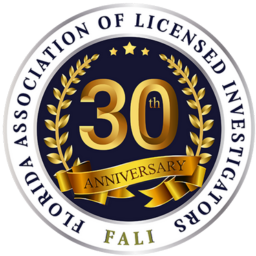TLDR / Key Takeaways
- HOA Board Fraud Is a Crime: Acts such as embezzlement, election fraud, and accepting kickbacks are prosecutable under various laws.
- 2024 Florida HOA Law Updates: Introduces stricter penalties for HOA crimes, including new categories for record-keeping violations and bribery.
- Defending Against Charges: Common legal defenses in HOA fraud cases include lack of intent and procedural errors.
- Protection of Rights: It's crucial for HOA members to know their rights and how to protect themselves against fraud.
Note: This article is for informational purposes only and is not intended as legal advice. For specific issues, consult a professional.
New Criminal Penalties Under Florida’s 2024 HOA Law
In response to ongoing issues with HOA board fraud in Florida, the state has enacted new legislation aimed at curbing these crimes by setting firmer legal frameworks and consequences.
Record-Keeping Violations
The new law penalizes deliberate mismanagement of financial records, aiming to ensure transparency and accuracy in HOA operations. Misrepresenting financial documents to cover up fraud now carries severe penalties.
Kickbacks and Bribes
Accepting or offering bribes for contracts or favors within an HOA is explicitly addressed in the new legislation. These actions are classified under corruption offenses, with consequences that can include fines and imprisonment.
Pre-Existing Criminal Penalties for HOA-Related Offenses
Embezzlement and Theft
Misappropriation of funds collected from HOA members for personal use or unauthorized purposes is a criminal act. This can lead to charges of theft or embezzlement, both of which carry substantial penalties.
Fraud
Manipulating elections, falsifying financial statements, or engaging in deceitful activities that harm the HOA or its members is classified as fraud. These offenses can result in criminal charges, depending on the severity and impact of the actions.
Election Fraud
Tampering with HOA elections, whether by manipulating vote counts or by disenfranchising members, is a serious offense. This type of fraud undermines the democratic processes of an HOA and is subject to legal action.
Common Defenses in HOA Criminal Cases
In cases of alleged HOA fraud, defense strategies might include demonstrating a lack of fraudulent intent or highlighting procedural errors during the investigation that could undermine the legitimacy of the evidence.
Protecting Your Rights
For HOA members, understanding your rights is crucial. This includes the right to access financial records, the right to vote in elections, and the right to be informed about association governance. If you suspect fraud, it’s advisable to consult with a legal professional who specializes in real estate or HOA law to discuss potential steps for addressing the issue within legal frameworks.
In our extensive experience investigating HOA fraud, the introduction of stringent laws has been pivotal in both deterring and addressing fraudulent activities within associations. Our investigations often reveal that many fraud cases stem from a lack of internal controls, which new laws now mandate to prevent. By enforcing these regulations and ensuring that all financial and administrative actions are transparent, HOAs can significantly reduce the incidence of fraud.
Our role as private investigators often involves working closely with legal teams to ensure that evidence collected is admissible in court, helping to secure convictions in cases of HOA fraud. We also provide consultation on best practices for fraud prevention, helping communities establish systems and policies that protect against financial mismanagement.
HOA board fraud is indeed a crime, and with the recent legislative updates in Florida, the penalties and means to combat these offenses have become more robust. Understanding these changes and the nature of HOA fraud not only helps in protecting individual rights but also ensures the health and sustainability of community living environments. By staying informed and proactive, HOA members can contribute to creating a secure and transparent community governance structure.






